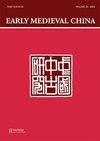Oral Formula and Intertextuality in the Chinese “Folk” Tradition (Yuefu)
IF 0.3
4区 社会学
0 ASIAN STUDIES
引用次数: 5
Abstract
Abstract Previous interpretations of early Chinese poetry (especially Han and Six Dynasties yuefu, or folk poetry) in terms of Milman Parry's and Albert Lord's oral-traditional poetics have run into a variety of conceptual and practical difficulties. I attempt to offer a more fruitful reading of the yuefu corpus in terms of orality, drawing in part on a re-reading of Parry and Lord and in part on recent linguistics-oriented scholarship in Classics. Through an analysis of three anonymous yuefu, and two by named authors (Shen Yue and Xiao Tong), I argue for the interpretation of the anonymous poems as constructed on principles familiar from oral poetics, such as the use of formulaic systems for generating phrases, and show that the yuefu by named poets are constructed differently. Similarly, I demonstrate that the anonymous poems, while seemingly random in thematic sequencing, share a division into six-line units, while the yuefu by named poets are more tightly integrated thematically but divided into units of irregular length. An understanding of the techniques of composition used for these two categories of poems is crucial, I argue, to their interpretation.口述方剂与中国“民间”传统(乐府)的互文性
以往对中国早期诗歌(尤其是汉六朝乐府)的口头传统诗学解读,在概念上和实践上都遇到了种种困难。我试图从口语的角度对乐府语料库进行更富有成效的阅读,部分借鉴了对《党与主》的重读,部分借鉴了最近以语言学为导向的经典研究。本文通过对三首佚名乐府和两首佚名乐府(沈悦和萧彤)的分析,论证了佚名乐府是根据口述诗学中熟悉的原则,如使用公式系统来生成短语的解释,并表明佚名诗人的乐府是不同的结构。同样地,我证明了无名诗虽然在主题顺序上看似随机,但却分成六行单元,而有名字的诗人的乐府在主题上更紧密地结合在一起,但分成了不规则的长度单元。我认为,理解这两类诗歌的写作技巧对于解读它们至关重要。
本文章由计算机程序翻译,如有差异,请以英文原文为准。
求助全文
约1分钟内获得全文
求助全文

 求助内容:
求助内容: 应助结果提醒方式:
应助结果提醒方式:


